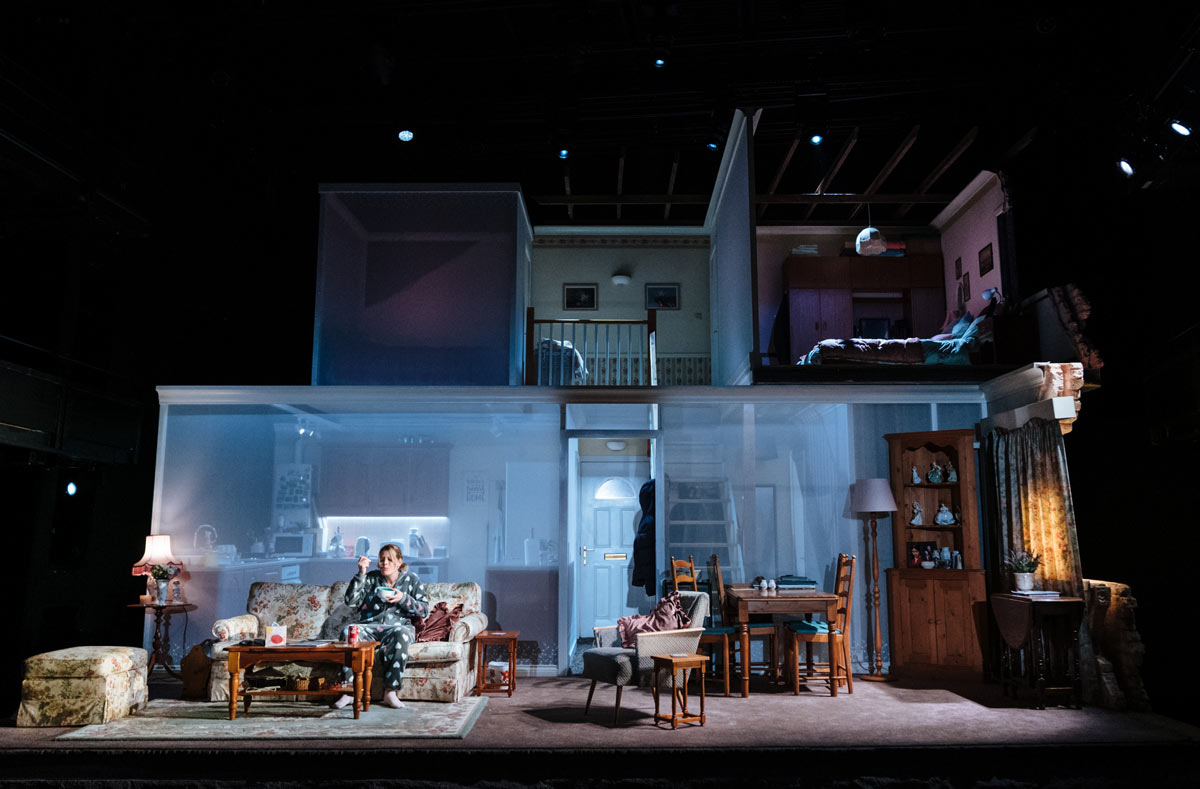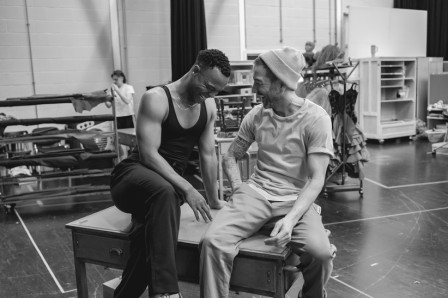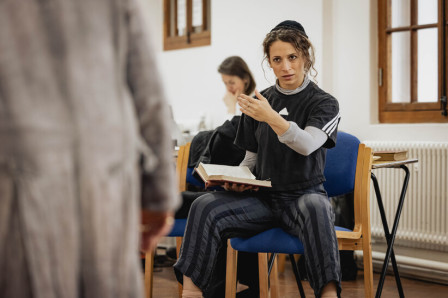Review: DIXON AND DAUGHTERS at National Theatre Dorfman
The National Theatre’s Dorfman stage plays host to DIXON AND DAUGHTERS a new piece of writing by Deborah Bruce for Clean Break which although it was penned pre-lockdown in 2018, remains significant and relevant as a subtle commentary (written from the female perspective), on the pervading and insidious dominance of the patriarchy.
 Andrea Lowe (Julie) in Dixon and Daughters at the National Theatre. Photo by Helen Murray.
Andrea Lowe (Julie) in Dixon and Daughters at the National Theatre. Photo by Helen Murray.
Somewhere in Bradford, Mary (Brid Brennan) is brought home to her two-up two-down by dependable daughter Bernie (Liz White) having served a 6 month prison sentence. Her grand-daughter Ella (Yazmin Kayani) and less dependable daughter Julie (Andrea Lowe) attempt to pervade a breezy veneer to the situation but it gradually becomes clear that Mary feels angry, let down and unsupported by her offspring. She also feels betrayed by another woman Tina — who has since changed her name by deed poll to Briana (Alison Fitzjohn), who Mary believes did the dirty on her in court. Completing the all-female cast is a young homeless woman Leigh (Posy Sterling) who has been sleeping rough but possesses a neat understanding of manipulation techniques and inveigles her way into the homestead.
Through a series of exchanges we gradually learn the reason for Mary‘s custodial sentence. Years before, she had deliberately introduced Tina into the family home (as a 9 year old adopted child) to serve as a sacrificial victim to satisfy the lusts of her pedophile husband. But, as a method to protect her own daughters, the device had only partially worked. By not reporting his abusive behaviour or properly protecting the vulnerable minors in her care, society had demanded a prison sentence of the now widowed woman. Having returned home, her immediate and extended female family members are struggling to balance compassion and forgiveness with an overwhelming need to understand why their mother failed in her most primal duty of care. For forgiveness to happen, she must first concede that there was any wrongdoing and so the play taps the most insidious elements of misogyny— those which lead some women to become the strongest apologists for the worst of male behaviour.
Despite the inherently dark subject matter there are light and comedic bursts of humanity even if some character threads feel either forced (Elle’s lecturous Uni lecturer revelation) or under-explored (as with Leigh’s homelessness and Mary’s compunction to house her).
Under Róisin McBrinn’s direction, the overwhelmingly female cast and creative team have created a gritty and thought-provoking piece of theatre which with just a little more polish and dynamism, would really fly.
Latest News

 I'M EVERY WOMAN - THE CHAKA KHAN MUSICAL moves London premiere to Hackney Empire
2 March 2026 at 16:12
I'M EVERY WOMAN - THE CHAKA KHAN MUSICAL moves London premiere to Hackney Empire
2 March 2026 at 16:12

 KINKY BOOTS at London Coliseum - Rehearsal images released
2 March 2026 at 13:57
KINKY BOOTS at London Coliseum - Rehearsal images released
2 March 2026 at 13:57

 Review: SEA WITCH at Theatre Royal Drury Lane
2 March 2026 at 12:07
Review: SEA WITCH at Theatre Royal Drury Lane
2 March 2026 at 12:07

 YENTL at Marylebone Theatre - Rehearsal images released
2 March 2026 at 08:25
YENTL at Marylebone Theatre - Rehearsal images released
2 March 2026 at 08:25